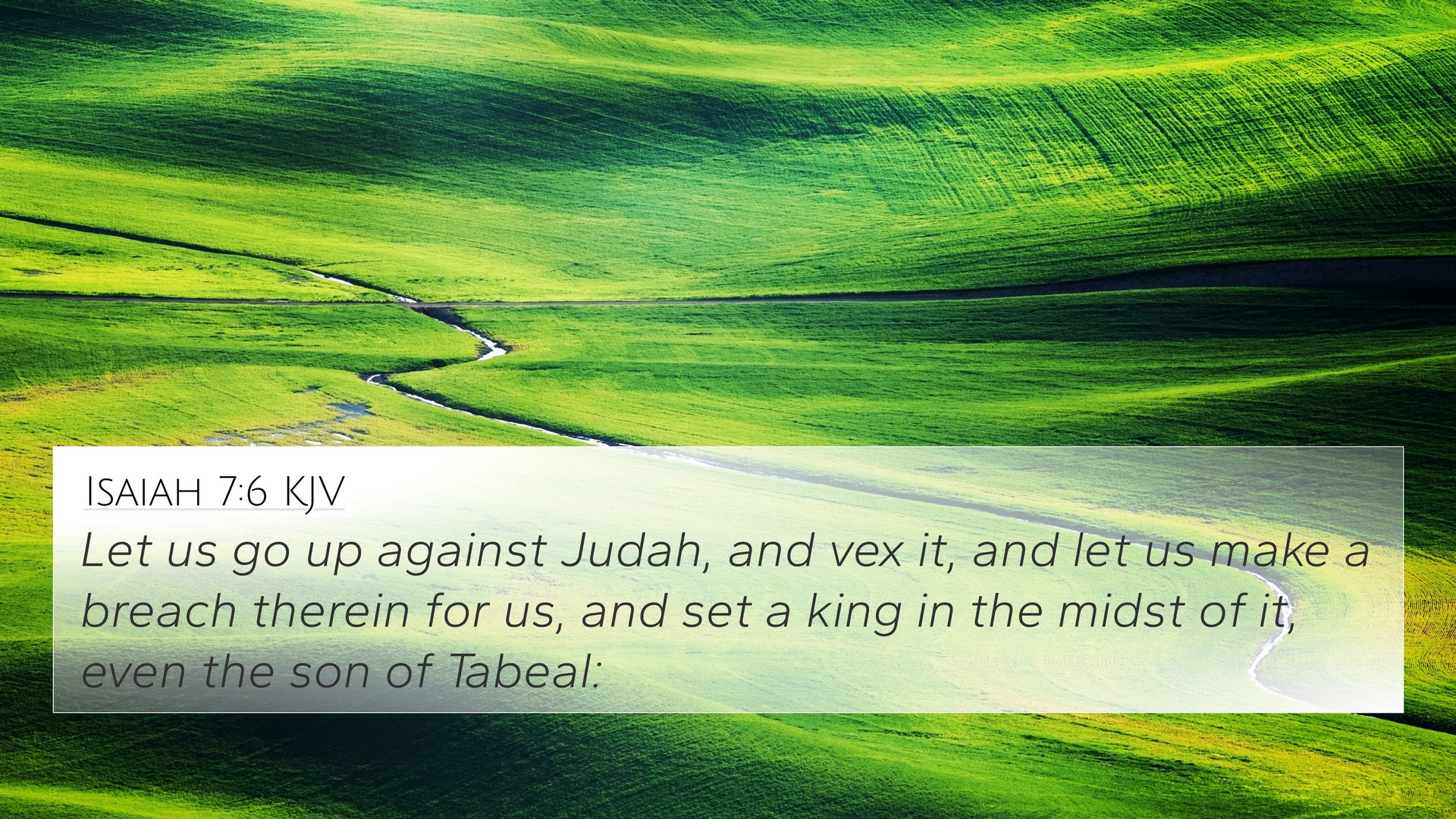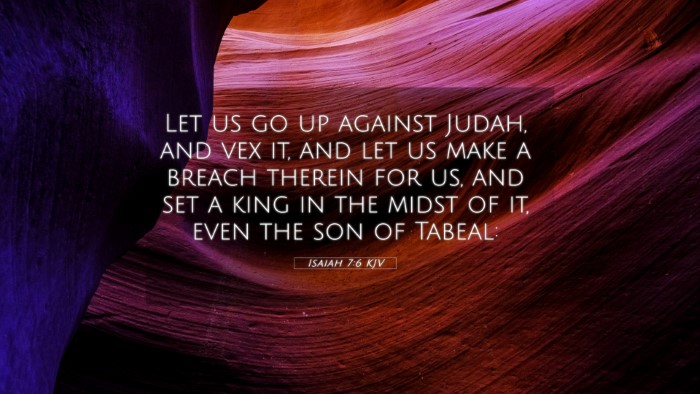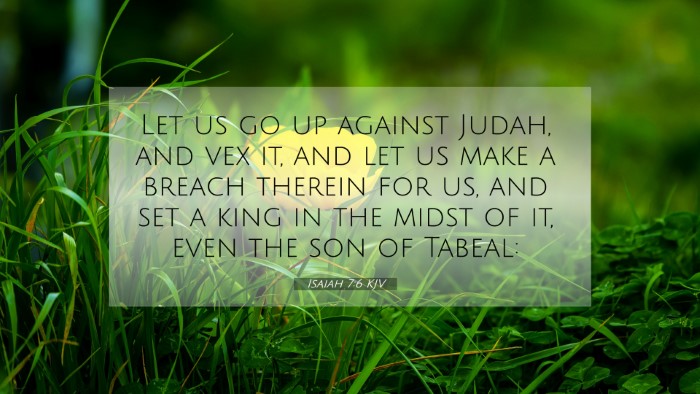Understanding Isaiah 7:6
Isaiah 7:6 states: "Let us go up against Judah, and vex it, and let us make a breach therein for us, and set a king in the midst of it, even the son of Tabeal."
This verse presents a significant political alliance against the kingdom of Judah during a time of great distress.
Verse Context and Meaning
In this verse, we see the kings of Israel and Syria conspire against Judah. The message communicated is pivotal for understanding not only the historical context but also the divine implications that follow.
Commentary Insights
Matthew Henry's Commentary
Matthew Henry explains that this verse highlights the adversarial plans of Rezin, the king of Syria, and Pekah, the king of Israel. Their intention was to instigate fear and weaken Judah's stability. This represents a theme of political intrigue compounded by theological consequences as God responds to Judah's lack of faith.
Albert Barnes' Notes
Albert Barnes elaborates on the urgency behind their coalition. The phrase "let us go up against Judah" indicates a deliberate strategy aimed at both undermining Judah's influence and establishing control through a puppet king. Barnes asserts that this was part of a broader narrative of sin and disobedience among God's people, and it foreshadows God’s deliverance through the prophetic message Isaiah would bring.
Adam Clarke's Commentary
Adam Clarke provides insight into the identity of "the son of Tabeal," noting that while he may have been a youthful and relatively unknown figure, his selection demonstrates the desperation of the adversaries to create disorder in Judah. Clarke emphasizes that this passage reflects the cosmic battle between earthly powers and divine authority.
Biblical Cross-References
This verse is linked with several other passages that illuminate its meaning through comparative analysis:
- Isaiah 7:5-7 - Provides context on the motives behind the alliance.
- 2 Kings 15:37 - References the historical account of the kings involved.
- Isaiah 8:4 - Discusses the threats posed to Judah and God's promise to protect it.
- 2 Chronicles 28:5-6 - Reinforces the narrative of warfare against Judah.
- Isaiah 9:6 - Contrasts the intrigue of earthly kingship with the true royal authority in Christ.
- Psalm 2:1-3 - Illustrates God’s reaction to conspiracies against His anointed.
- Matthew 1:23 - Connects indirectly through the prophecy of Immanuel, which is part of Isaiah's broader message.
Thematic Connections in Scripture
The themes emerging from Isaiah 7:6 resonate throughout the Bible, emphasizing the divine sovereignty amid human conflict:
- Faith amidst Fear: The struggle with faith in tumultuous times is a recurring theme.
- God's Promises of Protection: God continually reassures His people throughout scripture, such as in Psalm 46:1 and Isaiah 41:10.
- Political Intrigue and Schemes: The human inclination toward alliances against God's will is depicted in Acts 4:25-26.
- God’s Sovereignty over Nations: The narrative in Daniel 2:21 parallels the idea of God ruling over the affairs of nations.
- Divine Intervention: Stories like Esther and Gideon further illustrate God’s ability to intervene profoundly in political matters.
Inter-Biblical Dialogue and Analysis
The examination of Isaiah 7:6 in conjunction with other scriptures reveals the interconnectedness of biblical texts. By employing tools such as a Bible concordance and Bible cross-reference guide, readers can uncover the deeper significance of each verse. This verse exemplifies the need for cross-referencing Bible study to grasp the full context of God's intentions.
Conclusion
Isaiah 7:6 serves as a sobering reminder of the trials faced by God’s people and the lengths to which adversaries will go to disrupt divine plans.
Understanding its implications through cross-references enriches one’s study of scripture, providing layers of meaning that might otherwise remain hidden without a comparative approach.


